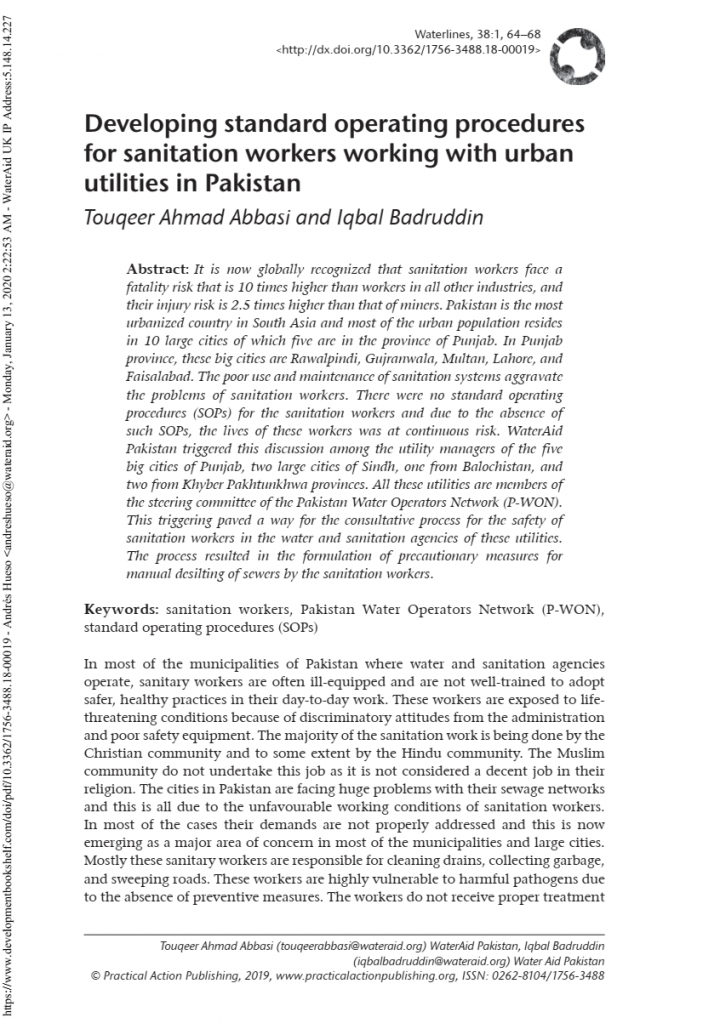Developing standard operating procedures for sanitation workers working with urban utilities in Pakistan Abbasi, T. A., Badruddin, I. (2019)
It is now globally recognized that sanitation workers face a fatality risk that is 10 times higher than workers in all other industries, and their injury risk is 2.5 times higher than that of miners. Pakistan is the most urbanized country in South Asia and most of the urban population resides in 10 large cities of which five are in the province of Punjab. In Punjab province, these big cities are Rawalpindi, Gujranwala, Multan, Lahore, and Faisalabad. The poor use and maintenance of sanitation systems aggravate the problems of sanitation workers. There were no standard operating procedures (SOPs) for the sanitation workers and due to the absence of such SOPs, the lives of these workers was at continuous risk. WaterAid Pakistan triggered this discussion among the utility managers of the five big cities of Punjab, two large cities of Sindh, one from Balochistan, and two from Khyber Pakhtunkhwa provinces. All these utilities are members of the steering committee of the Pakistan Water Operators Network (P-WON). This triggering paved a way for the consultative process for the safety of sanitation workers in the water and sanitation agencies of these utilities. The process resulted in the formulation of precautionary measures for manual desilting of sewers by the sanitation workers.
Bibliographic information
Abbasi, T. A., Badruddin, I. (2019). Developing standard operating procedures for sanitation workers working with urban utilities in Pakistan Practical Action Publishing
Filter / Tags
Urban (entire city)Research publicationsEnglishImport to Sanitation Workers PlatformHealth & SafetyHealth & Safety
Downloads
Developing standard operating procedures for sanitation workers working with urban utilities in Pakistan
Type: application/pdf
Size: 0.51 MB

